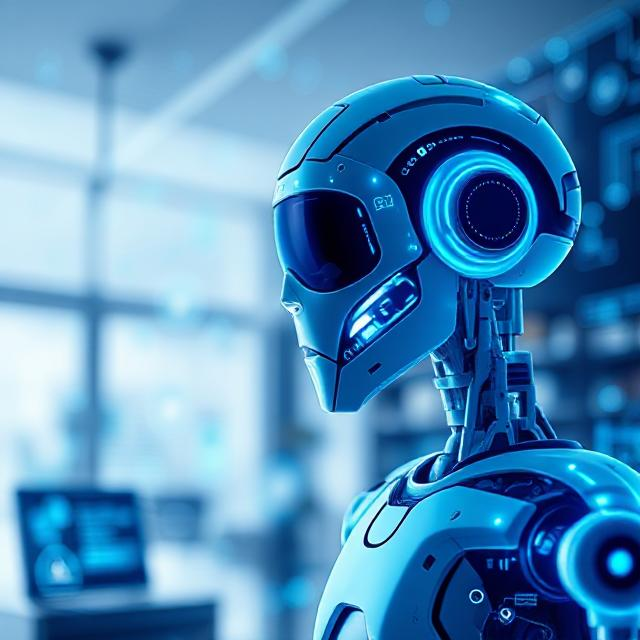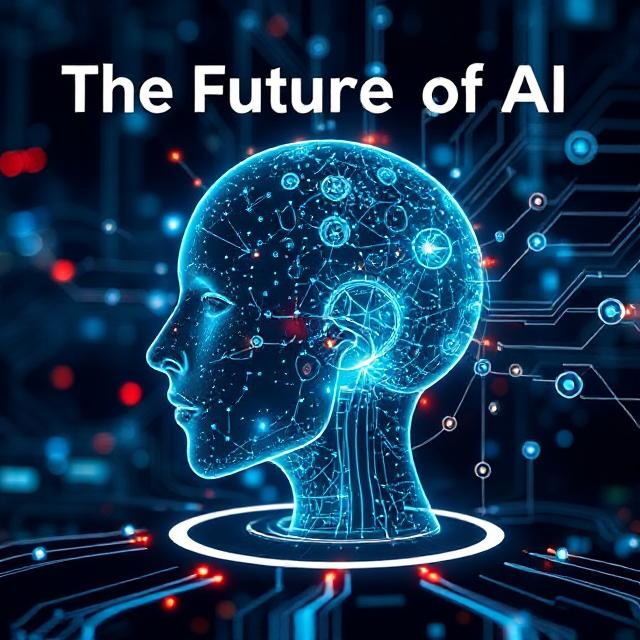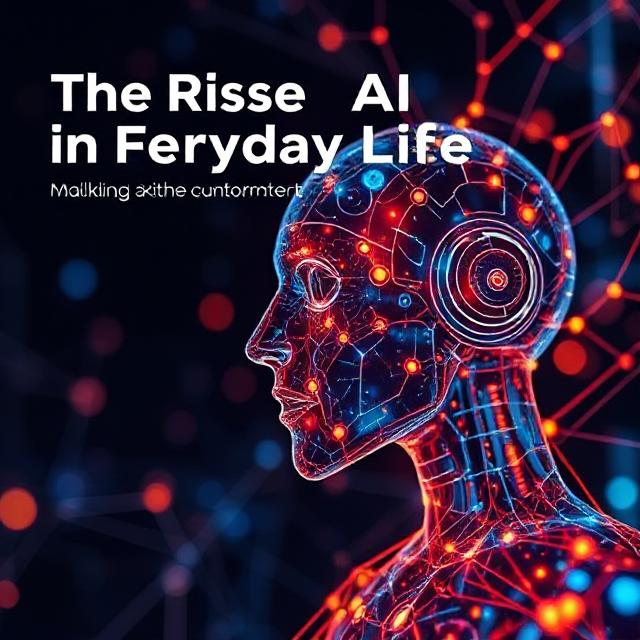Artificial Intelligence (AI) is no longer a distant dream; it has become a cornerstone of modern technology, influencing our daily lives in profound ways. From enhancing personal convenience to revolutionizing industries, AI is reshaping how we interact with technology, work, and communicate. This article delves into the multifaceted impact of AI, its applications, challenges, and the ethical considerations that accompany its rise.
AI in Home Automation

A New Era of Living
The concept of smart homes has gained immense traction, with AI at the forefront of this transformation. The integration of AI into home automation enhances comfort, security, and energy efficiency.
Smart Assistants: Devices like Amazon Alexa, Google Assistant, and Apple’s Siri serve as central hubs for controlling various smart devices. Beyond simple voice commands, these assistants learn user preferences, making interactions more intuitive. For example, they can adjust lighting, play music, or provide weather updates based on users’ routines.
Energy Management: Smart thermostats, such as Nest and Ecobee, utilize AI algorithms to optimize energy consumption. By learning user habits and adjusting settings accordingly, these devices help reduce energy costs. According to a study by the Rocky Mountain Institute, smart thermostats can save homeowners up to 10-15% on their heating and cooling bills.
Home Security Systems: AI-powered security cameras and alarms can identify unusual activity, send alerts to homeowners, and even differentiate between pets and intruders. For instance, systems like Ring and Arlo use AI to analyze video feeds, ensuring that alerts are relevant and actionable.
Enhancing Healthcare

AI’s Impact on Medicine
AI is revolutionizing healthcare by improving diagnostics, personalizing treatment, and enhancing patient care.
Diagnostic Tools: AI algorithms excel at analyzing medical images, such as CT scans and MRIs. For example, researchers at Stanford University developed an AI model that can detect pneumonia in chest X-rays with accuracy comparable to radiologists. Early detection significantly increases treatment success rates.
Predictive Analytics: AI can analyze vast amounts of patient data to predict health outcomes. By identifying risk factors and potential complications, healthcare providers can intervene proactively. For instance, AI models are being used to predict patient readmissions, allowing hospitals to implement targeted interventions.
Telehealth Services: The COVID-19 pandemic accelerated the adoption of telehealth, with AI enhancing virtual consultations. AI chatbots can triage symptoms, provide medical advice, and assist in scheduling appointments, making healthcare more accessible. A study by McKinsey found that telehealth usage increased by 38 times during the pandemic.
Revolutionizing Education

Personalized Learning Experiences
AI is transforming education by enabling personalized learning experiences tailored to individual student needs.
Adaptive Learning Technologies: Platforms like Knewton and DreamBox Learning use AI to assess students’ strengths and weaknesses, adjusting the curriculum in real-time. This personalized approach helps students master concepts at their own pace, fostering deeper understanding and engagement.
AI Tutors and Virtual Assistants: AI-powered tutoring systems offer additional support outside the classroom. For instance, platforms like Socratic and Khan Academy leverage AI to provide explanations, practice problems, and feedback, helping students reinforce their learning and build confidence.
Administrative Efficiency: AI streamlines administrative tasks such as grading and scheduling, allowing educators to focus more on teaching. Automated systems can analyze student performance data to inform instructional strategies, enabling schools to better meet the needs of their students.
The Future of Work

AI’s Role in the Workforce
AI’s integration into the workplace is transforming job roles and enhancing productivity. While concerns about job displacement exist, AI also presents opportunities for innovation and growth.
Automation of Routine Tasks: AI excels at automating repetitive tasks, such as data entry and inventory management. For instance, companies like UiPath and Automation Anywhere provide robotic process automation (RPA) solutions that streamline workflows, allowing employees to focus on higher-value tasks.
Collaborative AI Tools: AI is becoming a collaborative partner in various fields. Tools like IBM’s Watson assist professionals in finance and law by providing data analysis and insights. For example, Watson can analyze legal documents and suggest relevant case precedents, enhancing the efficiency of legal research.
Reskilling and Upskilling: As AI technologies evolve, the workforce must adapt. Companies are investing in training programs to help employees acquire new skills, ensuring they remain relevant in an increasingly automated landscape. According to a report by the World Economic Forum, up to 85 million jobs may be displaced by 2025, but 97 million new roles could emerge, requiring different skills.
Ethical Considerations and Challenges
Navigating the AI Landscape
While AI offers numerous benefits, it also raises ethical questions that must be addressed to ensure responsible use.
Data Privacy and Security: The collection and analysis of personal data raise significant privacy concerns. Companies must implement robust data protection measures to safeguard user information and comply with regulations like GDPR and CCPA. For instance, AI systems that process sensitive health data must prioritize confidentiality and security.
Bias and Fairness: AI algorithms can inadvertently perpetuate biases present in training data, leading to unfair outcomes. For example, facial recognition technology has faced criticism for racial bias. Developers must prioritize transparency and fairness in AI systems to avoid discrimination based on race, gender, or socioeconomic status.
Job Displacement Concerns: The automation of jobs raises legitimate concerns about displacement. Society must focus on reskilling and upskilling workers to prepare them for future job markets, ensuring a smooth transition. Governments and organizations are exploring policies to support displaced workers through retraining programs.
The Future of AI: Trends and Innovations

Emerging Technologies and Trends
As AI continues to advance, several trends and innovations are shaping its future:
Explainable AI (XAI): As AI systems become more complex, the need for transparency increases. Explainable AI aims to make AI decision-making processes understandable to users, fostering trust and accountability. This is particularly important in sectors like healthcare and finance, where decisions can have significant consequences.
AI in Sustainability: AI is being leveraged to address environmental challenges. From optimizing energy consumption in smart grids to monitoring wildlife populations, AI technologies are playing a crucial role in promoting sustainability. For example, AI algorithms can predict energy demand and optimize renewable energy sources, reducing carbon footprints.
Human-AI Collaboration: The future will likely see increased collaboration between humans and AI. Rather than replacing jobs, AI will augment human capabilities, leading to enhanced creativity and problem-solving. For instance, in creative industries, AI tools are being used to assist artists and designers in generating ideas and streamlining workflows.
Real-World Case Studies

AI in Action
Several companies and organizations are leading the way in AI innovation:
Tesla: Tesla’s Autopilot feature utilizes AI to enable semi-autonomous driving. The system learns from vast amounts of driving data, continuously improving its performance and safety features.
Netflix: Netflix employs AI algorithms to analyze viewer preferences and behavior, providing personalized recommendations that enhance user engagement. This data-driven approach has been instrumental in retaining subscribers and creating original content.
IBM Watson Health: IBM’s Watson Health leverages AI to analyze medical data, assisting healthcare providers in making informed decisions. Watson can sift through thousands of medical journals and clinical studies to provide evidence based recommendations.
Conclusion
The rise of AI is transforming our world in profound ways, enhancing convenience, improving healthcare, revolutionizing education, and reshaping the workforce. As we continue to integrate AI into our daily lives, it is essential to embrace its potential while addressing the ethical challenges it presents. With responsible development and implementation, AI can lead to a future filled with possibilities, improving the quality of life for all.



2 thoughts on “The Rise of AI in Everyday Life: Transforming Our World”